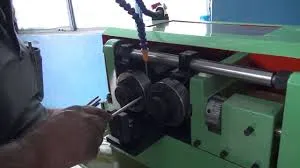
-
 Afrikaans
Afrikaans -
 Albanian
Albanian -
 Amharic
Amharic -
 Arabic
Arabic -
 Armenian
Armenian -
 Azerbaijani
Azerbaijani -
 Basque
Basque -
 Belarusian
Belarusian -
 Bengali
Bengali -
 Bosnian
Bosnian -
 Bulgarian
Bulgarian -
 Catalan
Catalan -
 Cebuano
Cebuano -
 Corsican
Corsican -
 Croatian
Croatian -
 Czech
Czech -
 Danish
Danish -
 Dutch
Dutch -
 English
English -
 Esperanto
Esperanto -
 Estonian
Estonian -
 Finnish
Finnish -
 French
French -
 Frisian
Frisian -
 Galician
Galician -
 Georgian
Georgian -
 German
German -
 Greek
Greek -
 Gujarati
Gujarati -
 Haitian Creole
Haitian Creole -
 hausa
hausa -
 hawaiian
hawaiian -
 Hebrew
Hebrew -
 Hindi
Hindi -
 Miao
Miao -
 Hungarian
Hungarian -
 Icelandic
Icelandic -
 igbo
igbo -
 Indonesian
Indonesian -
 irish
irish -
 Italian
Italian -
 Japanese
Japanese -
 Javanese
Javanese -
 Kannada
Kannada -
 kazakh
kazakh -
 Khmer
Khmer -
 Rwandese
Rwandese -
 Korean
Korean -
 Kurdish
Kurdish -
 Kyrgyz
Kyrgyz -
 Lao
Lao -
 Latin
Latin -
 Latvian
Latvian -
 Lithuanian
Lithuanian -
 Luxembourgish
Luxembourgish -
 Macedonian
Macedonian -
 Malgashi
Malgashi -
 Malay
Malay -
 Malayalam
Malayalam -
 Maltese
Maltese -
 Maori
Maori -
 Marathi
Marathi -
 Mongolian
Mongolian -
 Myanmar
Myanmar -
 Nepali
Nepali -
 Norwegian
Norwegian -
 Norwegian
Norwegian -
 Occitan
Occitan -
 Pashto
Pashto -
 Persian
Persian -
 Polish
Polish -
 Portuguese
Portuguese -
 Punjabi
Punjabi -
 Romanian
Romanian -
 Russian
Russian -
 Samoan
Samoan -
 Scottish Gaelic
Scottish Gaelic -
 Serbian
Serbian -
 Sesotho
Sesotho -
 Shona
Shona -
 Sindhi
Sindhi -
 Sinhala
Sinhala -
 Slovak
Slovak -
 Slovenian
Slovenian -
 Somali
Somali -
 Spanish
Spanish -
 Sundanese
Sundanese -
 Swahili
Swahili -
 Swedish
Swedish -
 Tagalog
Tagalog -
 Tajik
Tajik -
 Tamil
Tamil -
 Tatar
Tatar -
 Telugu
Telugu -
 Thai
Thai -
 Turkish
Turkish -
 Turkmen
Turkmen -
 Ukrainian
Ukrainian -
 Urdu
Urdu -
 Uighur
Uighur -
 Uzbek
Uzbek -
 Vietnamese
Vietnamese -
 Welsh
Welsh -
 Bantu
Bantu -
 Yiddish
Yiddish -
 Yoruba
Yoruba -
 Zulu
Zulu
CE Certified Rod Thread Rolling Machines for High-Precision Manufacturing and Enhanced Productivity Solutions
CE Certification for Rod Thread Rolling Machines
In the ever-evolving landscape of manufacturing and engineering, ensuring that machinery meets safety and quality standards is paramount. One of the key certifications that machines must often hold to be compliant and market-ready is the CE marking. This article will explore the significance of CE certification for rod thread rolling machines, a critical tool used in various industries, particularly in manufacturing fasteners and other threaded components.
Understanding CE Certification
The CE marking, which stands for Conformité Européenne, indicates that a product conforms to European health, safety, and environmental protection standards. This certification allows products to be sold within the European Economic Area (EEA) and is a key requirement for manufacturers aiming to enter European markets. Obtaining CE certification involves a rigorous process that assesses product design, construction, and safety features, ensuring they meet the relevant directives and regulations.
Importance of Rod Thread Rolling Machines
Rod thread rolling machines are instrumental in the production of threaded materials. They utilize a process that deforms the material to create threads, offering several advantages compared to traditional cutting methods, such as reduced material waste and enhanced strength of the final product. In industries such as automotive, aerospace, and construction, these machines play a critical role in ensuring that threaded components meet specific performance and safety requirements.
The Role of CE Certification in Rod Thread Rolling Machines
When it comes to rod thread rolling machines, CE certification is crucial for several reasons
1. Safety Assurance The safety of operators and users is paramount. CE certification ensures that these machines have undergone stringent testing to meet safety norms. Components like emergency stops, safety guards, and proper electrical installations must comply with EU standards to minimize the risk of accidents.
ce certification rod thread rolling machine

2. Quality Standards CE marking signifies adherence to quality benchmarks. Manufacturers of rod thread rolling machines must ensure their products meet performance standards, resulting in more reliable and efficient machines that can withstand demanding workloads.
3. Market Access For manufacturers wishing to sell their rod thread rolling machines in the European market, CE certification is a prerequisite. Without it, companies may find their products barred from entry, limiting their market reach and potential revenue streams.
4. Consumer Trust Products that bear the CE mark generate trust among consumers and businesses alike. This mark signifies that the machine has been evaluated by an independent entity and deemed fit for purpose, enhancing the credibility of the manufacturer.
5. Legal Compliance CE certification offers legal protection and reduces liability risks for manufacturers. It ensures compliance with EU directives, thus protecting companies against potential lawsuits or penalties related to unsafe machinery.
The Certification Process
The process of obtaining CE certification for rod thread rolling machines typically involves several steps
- Risk Assessment Manufacturers need to perform a thorough assessment to identify potential risks associated with the machine's use. - Design Compliance The machine design must align with applicable directives, such as the Machinery Directive and electromagnetic compatibility guidelines. - Testing and Evaluation The machinery undergoes rigorous testing, often involving third-party verification to confirm compliance with established standards. - Documentation Once compliant, manufacturers must compile technical documentation and a declaration of conformity to support their CE marking claim.
Conclusion
In summary, CE certification is integral to the machine manufacturing industry, particularly for rod thread rolling machines. It ensures safety, quality, and legal compliance while enhancing market opportunities. As industries continue to prioritize safety and quality, obtaining CE certification will remain a vital step for manufacturers aiming to thrive in the competitive European market. The commitment to safety and quality standards not only benefits manufacturers and consumers but also contributes to the overarching goal of promoting excellence in engineering and manufacturing practices.
